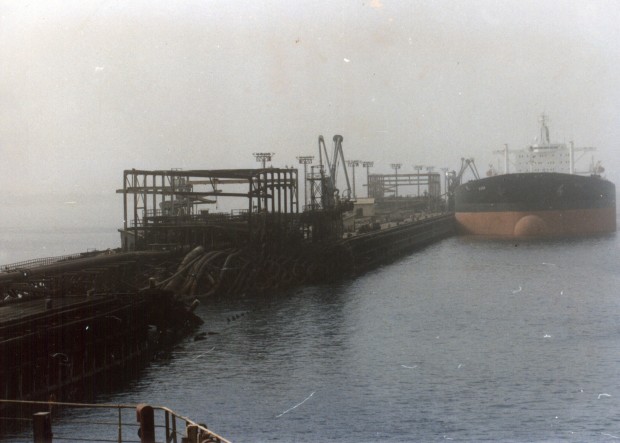Frontline Boycott Adds To Iran Oil Woes
US and European sanctions designed to pressure Iran over its nuclear programme may be cutting the Persian Gulf nation’s oil exports as vessels cancel trips to the country including all of the ships in the tanker fleet operated by Bermuda-based Frontline Ltd.
Shipments have declined by 300,000 to 400,000 barrels a day because sanctions are preventing Iran from selling oil, Amrita Sen, an analyst at Barclays Capital in London, told the Bloomberg financial news service today [Mar.7].
Half of the tankers booked to load at the country’s largest terminal last month didn’t complete the voyages, according to brokers, company officials and ship-tracking data.
Ship owners are avoiding trade with Iran because US financial sanctions are blocking payments and the main providers of cover against risks such as oil spills are subject to the European Union’s ban on the purchase, transportation, financing and insurance of Iranian oil.
While the European Union embargo approved January 23 exempts pre-existing contracts until July, it has already made fewer ships available to carry Iranian crude.
“Iran is finding it increasingly difficult to sell crude, and their production is sliding,” Leo Drollas, chief economist at the London-based Centre for Global Energy Studies, said today by phone. “They are suffering, there’s no doubt.”
Iran, the Organisation of Petroleum Exporting Countries’ second-biggest producer, pumped 3.45 million barrels a day last month, the lowest level since September 2002, according to data compiled by Bloomberg. Oil sales earned Iran $73 billion in 2010, accounting for about 50 percent of government revenue and 80 percent of exports, the US Energy Department estimates.
Twenty-two tankers were booked to call at Kharg Island in February, according to brokers including New York-based Poten & Partners Inc. Eleven of the ships failed to load cargoes totaling 1.88 million deadweight tons, or about 13.8 million barrels, according to ship-tracking data and company officials.
Iran’s Kharg Island Oil Shipment Terminal
Bermuda’s Frontline Ltd., New York-based Overseas Shipholding Group Inc. and owners controlling more than 100 other supertankers said between February 9 and February 11 they would stop carrying Iranian oil.
Frontline companies including Hamilton-headquartered Frontline Ltd. and Frontline 2012 would no longer ship Iranian crude, said Jens Martin Jensen, chief executive officer of Frontline Management AS, said in February.
Frontline operates 43 very large crude oil carriers [VLCCs], according to its website. One of the world’s largest oil tanker shipping companies, Frontline is controlled by Norwegian-born shipping magnate John Fredriksen.
Previous efforts to curb Iran’s oil income and stop it from developing nuclear weapons failed because the structure of the shipping industry means vessels are often managed by companies outside the US or European Union [EU].
The EU embargo affects 95 percent of the world’s tankers because they are insured by the 13 members of the London-based International Group of P&I Clubs, according to Andrew Bardot, its secretary and executive officer.
Carrying Iranian oil invalidates ships’ coverage against risks including spills and collisions, he said on January 26. Asian insurers are also affected because they buy reinsurance from the International Group.


